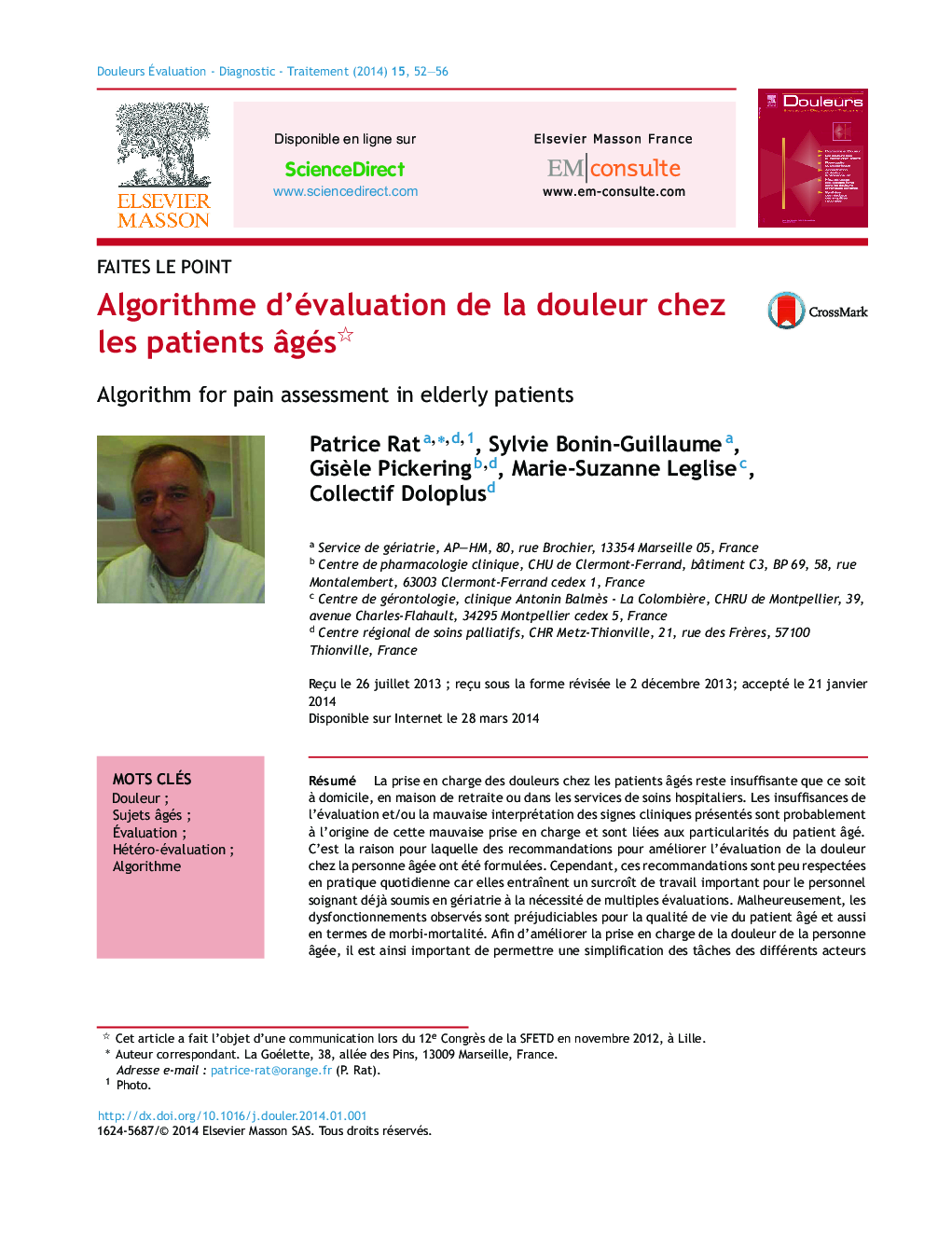| Article ID | Journal | Published Year | Pages | File Type |
|---|---|---|---|---|
| 905114 | Douleurs : Evaluation - Diagnostic - Traitement | 2014 | 5 Pages |
Abstract
Pain management in the elderly remains insufficient, be it at home, in nursing homes or hospitals. Inadequate evaluation and/or misinterpretation of the clinical signs present probably explain this poor management and are linked to the particularities of the old patient. Thus, recommendations to improve evaluation of pain in the elderly were formulated. However, these guidelines are rarely implemented in daily practice, most likely because they markedly increase the workload of the geriatric healthcare workers already required to perform multiple evaluations. Unfortunately, the dysfunctions observed are detrimental to the quality of life of these patients, and their morbidity and mortality. To improve pain management in the elderly, it is important to simplify the tasks of the different actors involved by proposing evaluation algorithms taking advantage of the complementarity of self-report and behavioral scales.
Related Topics
Life Sciences
Neuroscience
Neurology
Authors
Patrice Rat, Sylvie Bonin-Guillaume, Gisèle Pickering, Marie-Suzanne Leglise, Collectif Doloplus Collectif Doloplus,
